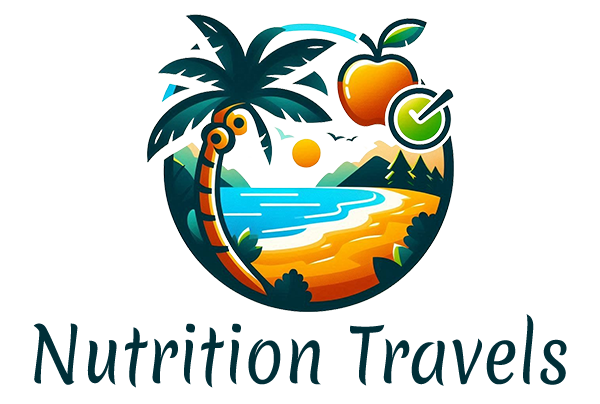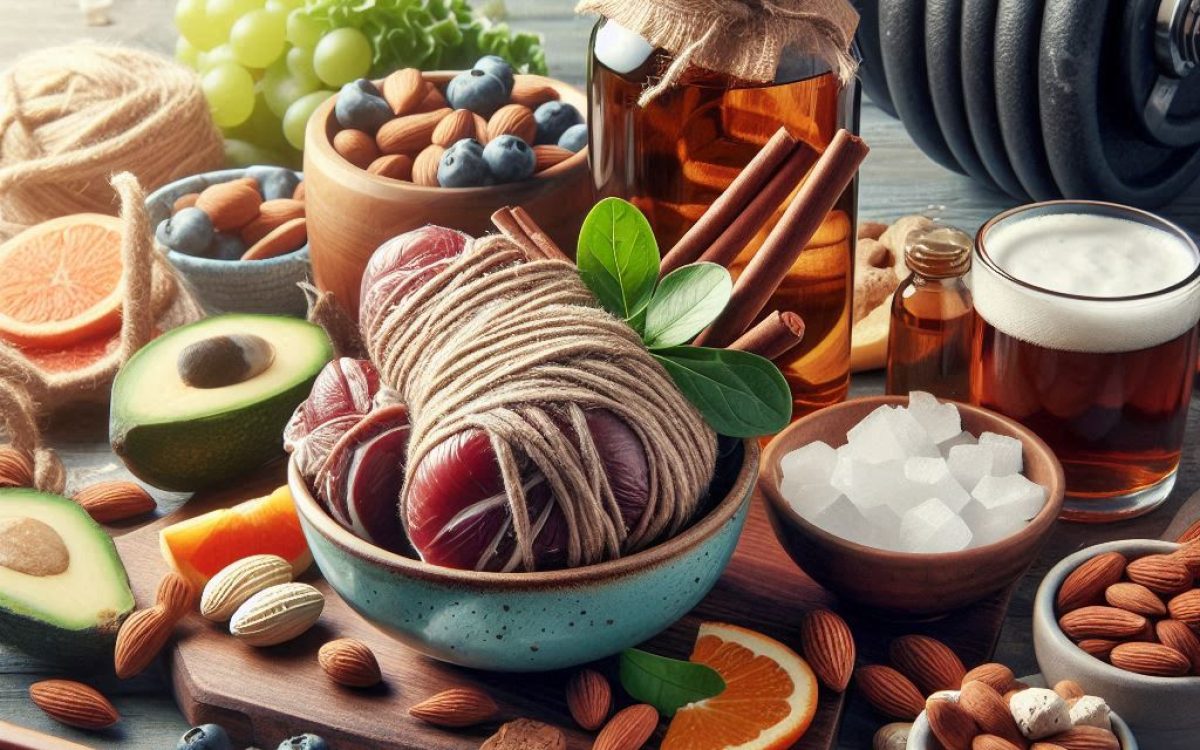Muscle soreness is one of the most common experiences after intense exercise or long-distance running. The right muscle recovery foods can help repair tissues, reduce inflammation, and speed up healing. This type of soreness, known as delayed-onset muscle soreness (DOMS), usually appears 12–24 hours after exercise and may last for several days.
In this article, we will explore the best foods for muscle recovery, their benefits, and how to incorporate them into your diet.
The Role of Nutrition in Muscle Recovery:
During exercise, especially resistance training or high-intensity workouts, muscle fibers experience microscopic tears. This process stimulates muscle growth and adaptation, but at the same time, it causes inflammation and soreness. Nutrition supports recovery in four main ways:
- Protein: Repairs and builds new muscle tissue.
- Carbohydrates: Replenish glycogen stores depleted during exercise.
- Healthy fats: Reduce inflammation and support healing.
- Vitamins, minerals, and antioxidants: Protect muscles from oxidative stress and promote recovery.

Protein-Rich Foods for Muscle Repair:
Protein is the most important nutrient during recovery as it provides the amino acids needed for muscle repair and to reduce soreness.
1. Lean Meats:
Chicken, turkey, and lean beef are rich in high-quality protein, as well as iron and zinc, which are essential for muscle function.
2. Fish:
Salmon and tuna provide protein along with omega-3 fatty acids, which reduce inflammation and speed up recovery.
3. Eggs:
Eggs are a complete source of protein, containing all the essential amino acids. Egg yolks also provide vitamin D and healthy fats.
4. Plant-Based Protein Sources:
Lentils, beans, and quinoa are excellent choices. Quinoa is particularly beneficial since it is a complete protein similar to animal sources.

Carbohydrate-Rich Foods for Energy Replenishment:
Muscles use glycogen stores as their primary energy source during exercise. Replenishing glycogen after training is essential to reduce fatigue and support recovery.
1. Whole Grains:
Brown rice, oats, quinoa, and whole-grain bread provide complex carbohydrates and fiber, offering long-lasting energy.
2. Fruits:
Bananas, berries, oranges, and pineapples are rich in natural sugars for quick energy and also supply vitamins and antioxidants.
3. Starchy Vegetables:
Sweet potatoes, beets, and squash are excellent options. Sweet potatoes, for example, provide carbohydrates along with vitamin C and beta-carotene, which help reduce oxidative stress.

Healthy Fats to Reduce Inflammation:
Fats are not always harmful; certain healthy fats help decrease exercise-related inflammation.
1. Omega-3 Fatty Acids:
Found in fatty fish, flaxseeds, chia seeds, and walnuts. They help relieve muscle soreness and stiffness.
2. Avocado:
Rich in monounsaturated fats, potassium, and magnesium, all of which are essential for muscle function.
3. Nuts and Seeds:
Almonds, sunflower seeds, and pumpkin seeds are excellent sources of healthy fats, protein, and minerals.
Electrolyte-Rich Foods:
Dehydration can worsen muscle soreness and delay recovery. It is important to replenish fluids and minerals lost through sweating.
1. Leafy Greens:
Spinach, kale, and Swiss chard provide magnesium and calcium, which regulate muscle contractions.
2. Milk:
Contains protein, calcium, and electrolytes. Chocolate milk, in particular, is effective thanks to its balance of carbohydrates and protein.

Antioxidant-Rich Foods for Healing:
Intense exercise increases the production of free radicals, which cause oxidative stress. Antioxidants help combat these free radicals and speed up recovery.
1. Berries:
Blueberries, strawberries, and blackberries are loaded with anthocyanins and vitamin C.
2. Tart Cherry Juice:
Studies show that tart cherry juice reduces muscle soreness thanks to its anti-inflammatory properties.
3. Citrus Fruits:
Oranges, grapefruits, and lemons provide vitamin C, which supports collagen formation.
4. Green Tea:
Rich in catechins, powerful antioxidants that reduce inflammation.

Fermented Foods for Gut and Immune Health:
Fermented foods play a vital role in muscle recovery because they support gut health, which directly affects how well your body absorbs nutrients. A healthy gut also reduces inflammation and strengthens the immune system—both essential for faster healing after exercise.
Great options include:
- Yogurt and Greek Yogurt: Packed with probiotics, protein, and calcium.
- Kefir: A fermented milk drink richer in probiotics than yogurt.
- Kimchi and Sauerkraut: Provide beneficial bacteria along with vitamins and antioxidants.
- Kombucha: A fermented tea that offers probiotics and hydration.
By adding fermented foods to your post-workout meals, you not only boost digestion but also enhance your body’s ability to recover and adapt after training.
Post-Workout Snack Ideas:
1. Grilled salmon with quinoa and roasted vegetables.
2. Chicken breast with sweet potatoes and spinach.
3. Greek yogurt with berries and chia seeds.
4. Omelet with avocado and whole-grain bread.
5. Smoothie with banana, spinach, almond butter, and plant-based protein.

Additional Recovery Tips Beyond Nutrition:
1. Adequate sleep: Essential for muscle repair and hormone regulation.
2. Stretching and light activity: Helps reduce stiffness.
3. Stay hydrated: Supports nutrient transport.
4. Rest: Gives muscles enough time to grow and recover.
Muscle soreness is a natural part of physical progress, but recovery doesn’t have to be slow or painful. By focusing on protein-rich foods, complex carbohydrates, healthy fats, antioxidant-packed fruits and vegetables, and proper hydration, you can speed up the healing process and return to training with greater energy.
At Nutrition Travels, we believe that the best foods for muscle recovery not only reduce soreness but also help build a stronger, more resilient body. Balance and consistency are key. With proper nutrition, enough sleep, and adequate rest, every training session becomes a step toward better performance and improved health.





